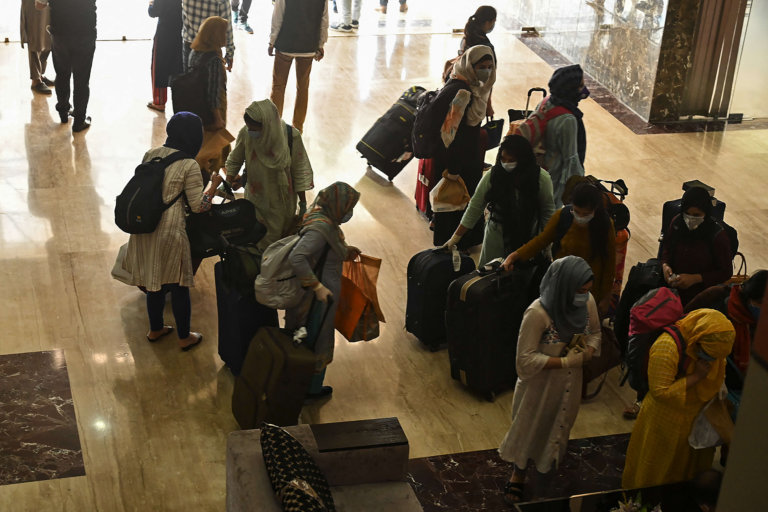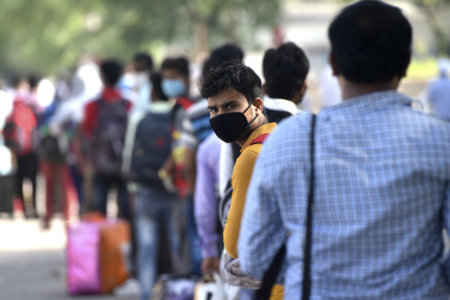
If you’re a student from the Punjab region headed for Canada, you might want to hold off buying flight tickets. A recent report from The Indian Express revealed that concern over the Omicron wave resulted in reduced approvals in Canadian study visas for Indian students.
Those affected are applicants under the regular student visa application, instead of the Student Direct Stream (SDS) category. The SDS is a new scheme that allows students from 14 countries to apply for expedited Canadian study visas, which takes about 20 calendar days to process. Indian students are eligible for the SDS scheme, and the application fee starts at 150 Canadian dollars.
The newly launched STUDENT DIRECT STREAM (SDS) program offers faster and simpler visa processing to international students. Read here https://t.co/M1Bv0hEuk5 & send your queries for VISA FRIDAY as a reply to this tweet before 14 June, Thursday, 4pm. pic.twitter.com/bbHI1BMGvA
— Canada in India (@CanadainIndia) June 11, 2018
Education agencies in India confirmed that pre-pandemic approvals for non-SDS visas were high. The trend looks to be reversing with the threat of surging Omicron-related cases. Favoured study destinations such as Australia, UK, US and Canada are seeing a new wave of COVID-19 infections that are skyrocketing daily. Universities in Canada have opted for online learning to kick off the new year as campuses grapple with growing active cases.
“With the introduction of SDS, now the application numbers are going up. But because of COVID-19 restrictions, Canada is considering only those who got high bands in the IELTS and are applying under the SDS category,” Narpat Singh Babbar, an Canadian education consultant, was quoted saying.
Employment and immigration prospects urge more Indians to apply for Canadian study visas

Canada has surpassed the US as the top study destination choice among Indian students. Source: Daniel Slim / AFP
Babbar mentions that there are around 50% to 60% of applicants under the non-SDS category who are eager to study in Canada over other countries, citing the potential for permanent residency following the post-graduate work permit (PGWP) as a strong motivator behind the decision.
A recent report by Statistics Canada has shown that immigrant wages are on the rise, particularly for those with post-secondary education and prior experience in the Canadian workforce.
If you’re looking to work in Canada 🇨🇦, you’re in luck: Canadian immigrants are earning more, report shows.#StudyinCanada #WorkinCanada #internationalstudentCanadahttps://t.co/2Lr8KTCs5G
— Study International (@Study_INTNL) January 6, 2022
More jobs are up for grabs in Canada 🇨🇦 Will it bode well for international students? 🤔#workinCanada #internationalstudentsCanada #CanadaJobshttps://t.co/6p6qddInzH
— Study International (@Study_INTNL) January 3, 2022
Canada has edged out the US as a top study destination among Indian students. Presently, a total of 215,720 Indian students are Canadian study permit holders, surpassing the US by 1.8%. In the first four months of 2021 alone, the Canadian High Commission in Delhi issued 100,000 Canadian visas for students, which was 4.2% higher than the same months two years prior.
Studies have shown that one in three international graduates in Canada eventually settle as immigrants, with Indian students making up the largest number of new permanent residents between 2010 and 2014 at 46%. International graduates employed in Canada after their studies are 60% more likely to immigrate and remain in the country.
Based on these numbers, the prospects are still looking good for Indian nationals to seek for Canadian university and work experience. With Omicron cases on the rise, there will likely be a temporary hiccup to visa approvals. It remains to be seen whether India will be red listed by Canada for international travel.
In mid-2021, the Canadian government issued travel restrictions and strict quarantine measures for flights departing from India and Pakistan. The measure has since been lifted, and international students entering Canada must be enrolled in a Designated Learning Institution (DLI) with a COVID-19 readiness plan.











